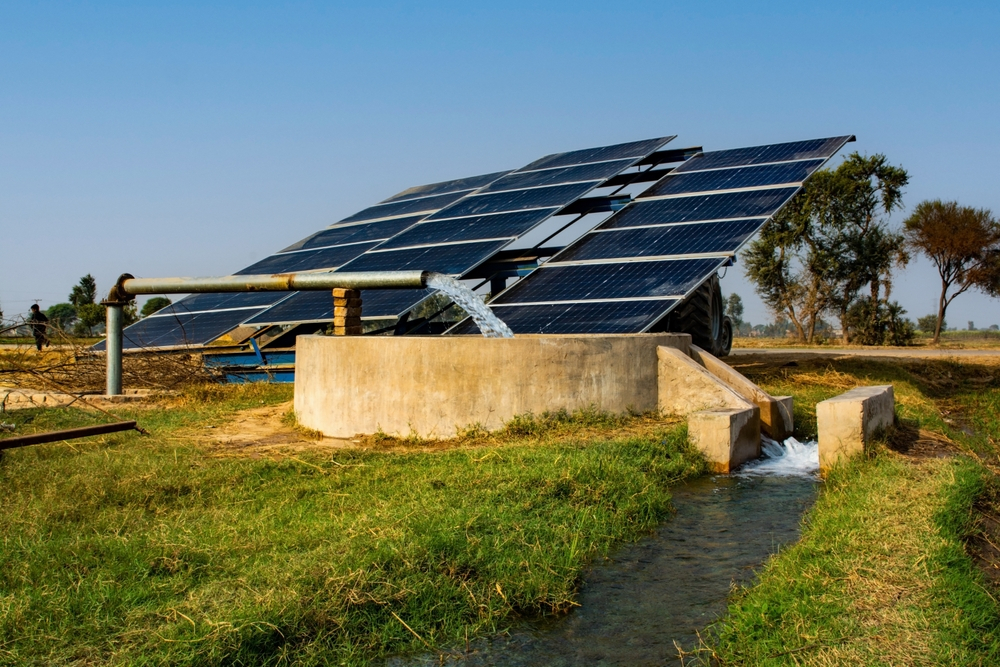Solar tubewells have emerged as a sustainable solution to address the pressing challenges of both energy consumption and water scarcity in agricultural regions. By harnessing solar power, these innovative systems offer a promising alternative to traditional diesel or electric pump installations. Let’s delve deeper into how solar tubewell is transforming the landscape of energy and water management.
Understanding Solar Tubewells
Solar tubewells utilize photovoltaic panels to convert sunlight into electricity, which powers a pump to draw water from underground sources such as wells or boreholes. Unlike conventional pumps that rely on fossil fuels or grid electricity, solar tubewells operate autonomously, making them environmentally friendly and cost-effective in the long run.
Advantages of Solar Tubewells
Energy Independence: By harnessing solar energy, farmers reduce their dependence on diesel or grid electricity, thereby mitigating the impact of volatile fuel prices and power outages.
Water Conservation: Solar tubewells promote efficient water usage by providing a sustainable means of extracting groundwater for irrigation, reducing reliance on surface water sources prone to depletion and contamination.
Environmental Benefits: With zero greenhouse gas emissions and minimal environmental footprint, solar tubewells contribute to mitigating climate change and preserving ecosystems.
Cost Savings: While the initial investment in solar tubewells may be higher compared to traditional pumps, the long-term operational savings in fuel and maintenance costs outweigh the upfront expenses, resulting in significant economic benefits for farmers.
Challenges and Considerations
Despite their numerous advantages, solar tubewells also face certain challenges and considerations:
Initial Investment: The upfront cost of installing solar tubewells, including photovoltaic panels, pumps, and storage systems, can be prohibitive for smallholder farmers with limited financial resources.
Technical Expertise: Proper installation, maintenance, and troubleshooting of solar tubewells require technical expertise, which may not be readily available in rural areas lacking skilled professionals.
Battery Storage: Solar tubewells often incorporate battery storage systems to ensure continuous operation during periods of low sunlight or at night. However, battery maintenance and replacement add to the overall cost and complexity of the system.
Water Quality: While solar tubewells offer a sustainable source of water for irrigation, careful monitoring is necessary to prevent over-extraction and maintain water quality, particularly in areas prone to groundwater depletion and contamination.
Future Outlook
Despite these challenges, the widespread adoption of solar tubewells holds immense potential to transform agricultural practices and improve livelihoods in rural communities. Government incentives, technological advancements, and capacity-building initiatives can further accelerate the adoption of solar-powered irrigation systems, ensuring sustainable water management and energy security for future generations.
In the realm of renewable energy, DS Group of companies, under the banner of DSG Energy, stands out as a beacon of innovation and sustainability. Established with a vision to contribute back to Pakistan, DS Group has been pioneering efforts in the power sector, particularly in harnessing renewable energy sources. With a focus on solar energy solutions, DSG Energy is at the forefront of revolutionizing water pumping systems through initiatives like solar tubewells. Their expertise extends beyond energy production, encompassing consultancy services for large-scale projects in both public and private sectors, aligning perfectly with the transformative potential of solar tubewells to address energy and water challenges simultaneously.
Conclusion
Solar tubewells represent a paradigm shift in water pumping technology, offering a sustainable solution to address the dual challenges of energy consumption and water scarcity in agriculture. By harnessing the abundant power of the sun, these innovative systems empower farmers to enhance productivity, reduce costs, and mitigate environmental impact, paving the way for a more resilient and sustainable future.

